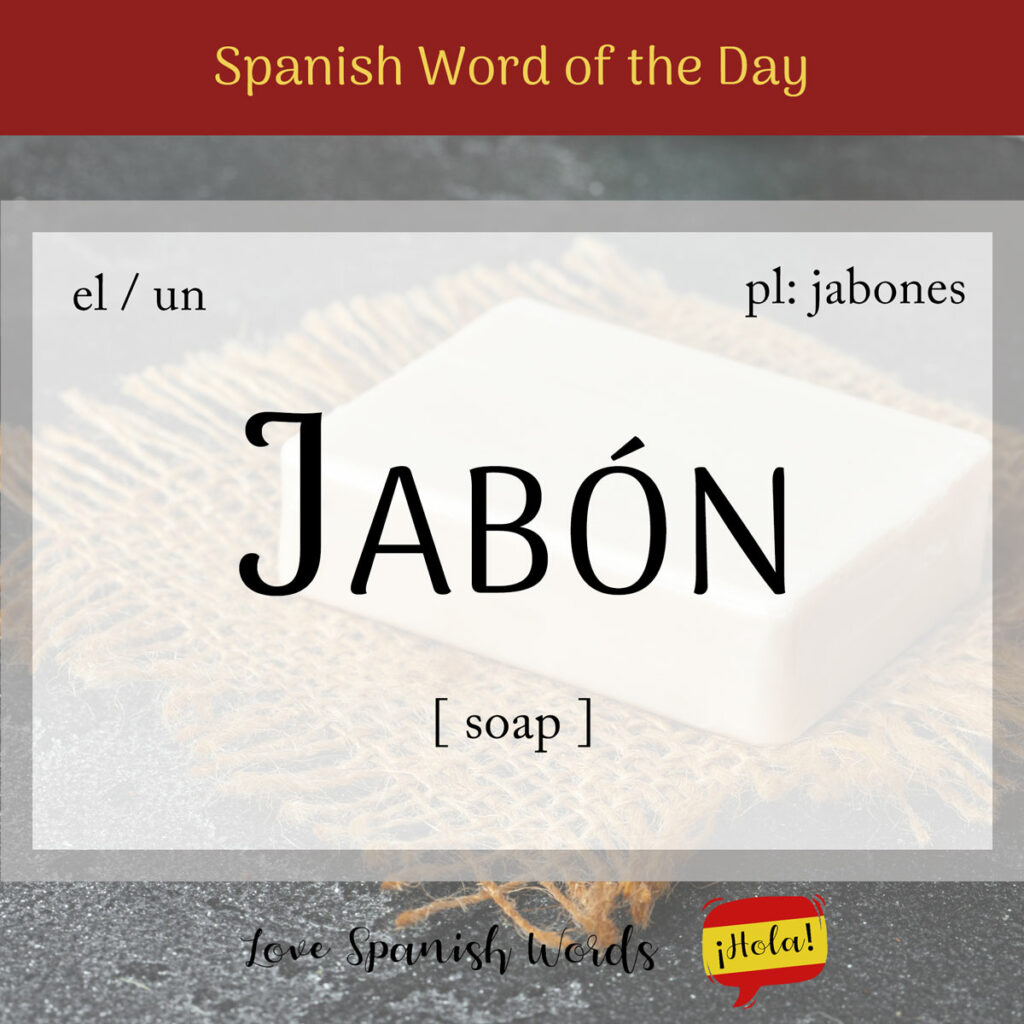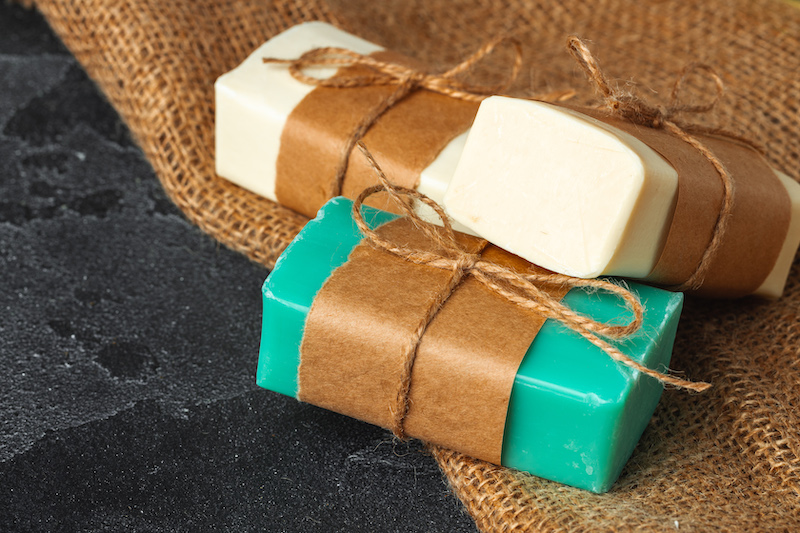The word for the substance we use to wash ourselves is jabón in Spanish, or soap in English.
Latin American Pronunciation
European Pronunciation

Jabón, being a masculine noun, takes the following definite and indefinite articles:
- el jabón = the soap
- los jabones = the soaps
- un jabón = a soap
- unos jabones = some soaps
According to the Diccionario Etimológico Castellano En Línea, the word jabón comes from Late Latin sapo-onis, and sapo comes from ancient Greece. On the hill of Sapo, it is said that sacrifices were made by burning animal corpses whose fat, when melted and mixed with the ashes, turned into soap.
Here are a few useful terms related to jabón in Spanish:
- espuma de jabón = soap suds
- barra / pastilla de jabón = soap bar
- jabón de olor / tocador = toilet soap
- jabón en polvo = soap powder
- jabón de sastre = tailor’s chalk
- jabón líquido = gel / liquid soap
- jabón de afeitar = shaving soap
- jabón de platos = dish soap
¡Recuerda lavarte las manos con jabón!
Remember to wash your hands with soap!

In colloquial Spanish, jabón can also mean flattery. This figurative meaning appears in the idiomatic phrase dar jabón a alguien (literally “to give soap to someone”), which means to butter someone up, to suck up to someone, or to soft-soap someone. You may also hear untar jabón (literally “to spread soap”).
Siempre le está dando jabón al jefe.
He’s always sucking up to his boss.
A slightly different twist on the same expression is dar un jabón a alguien, with the indefinite article un (a / an). This is an archaic expression that means to tell someone off.
A Caribbean idiom that corresponds to the English “they’re as different as chalk and cheese” is no es lo mismo jabón que hilo negro, which literally translates to “soap is not the same as black thread.”
In Caribbean, Southern Cone, and Mexican Spanish, jabón can also refer to a fright or scare, as in the expressions agarrarse un jabón ( literally “to grab oneself a soap”) and pegarse un jabón (literally “to hit oneself with soap”). Both these expressions mean to get a fright in English.
¡Qué jabón que nos llevamos!
What a fright we had!
As for the adjective soapy, it can be expressed with con jabón (with soap), de jabón (of soap) or jabonosa (soapy). For example, if you want to say soapy water, you can use either agua con jabón or agua jabonosa. You can also expect to hear cubierto de jabón (covered in soap).

